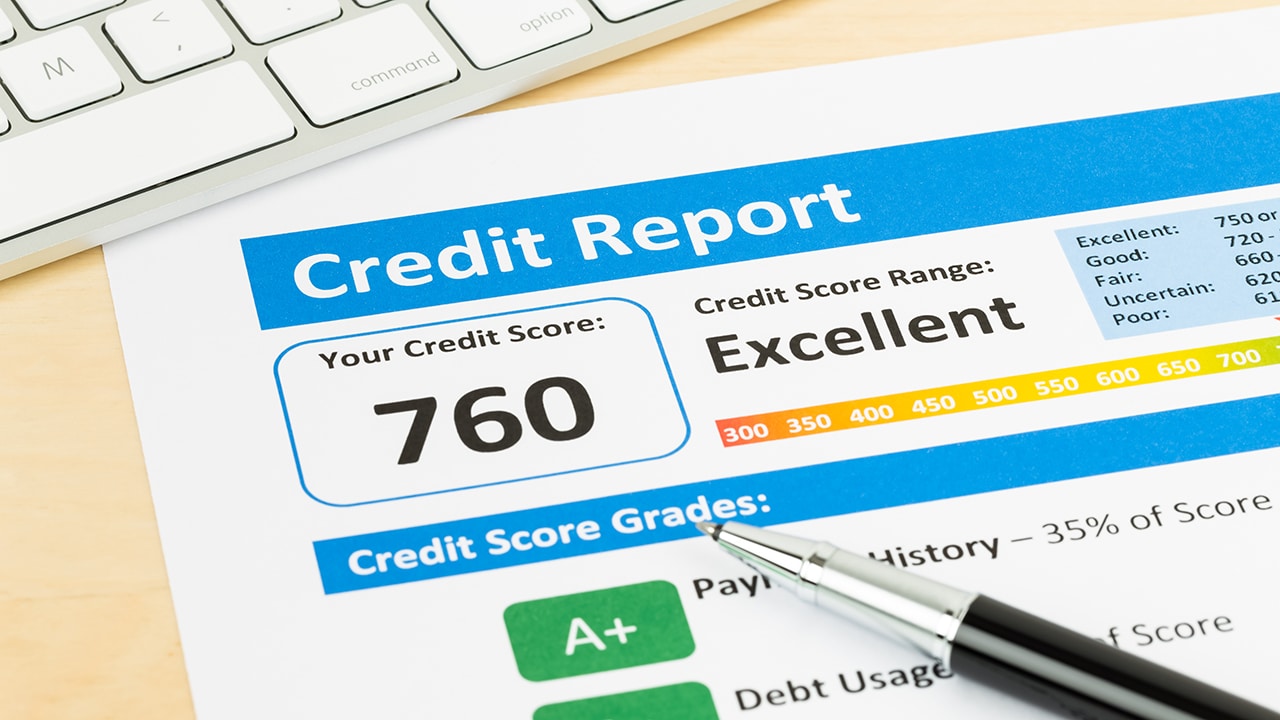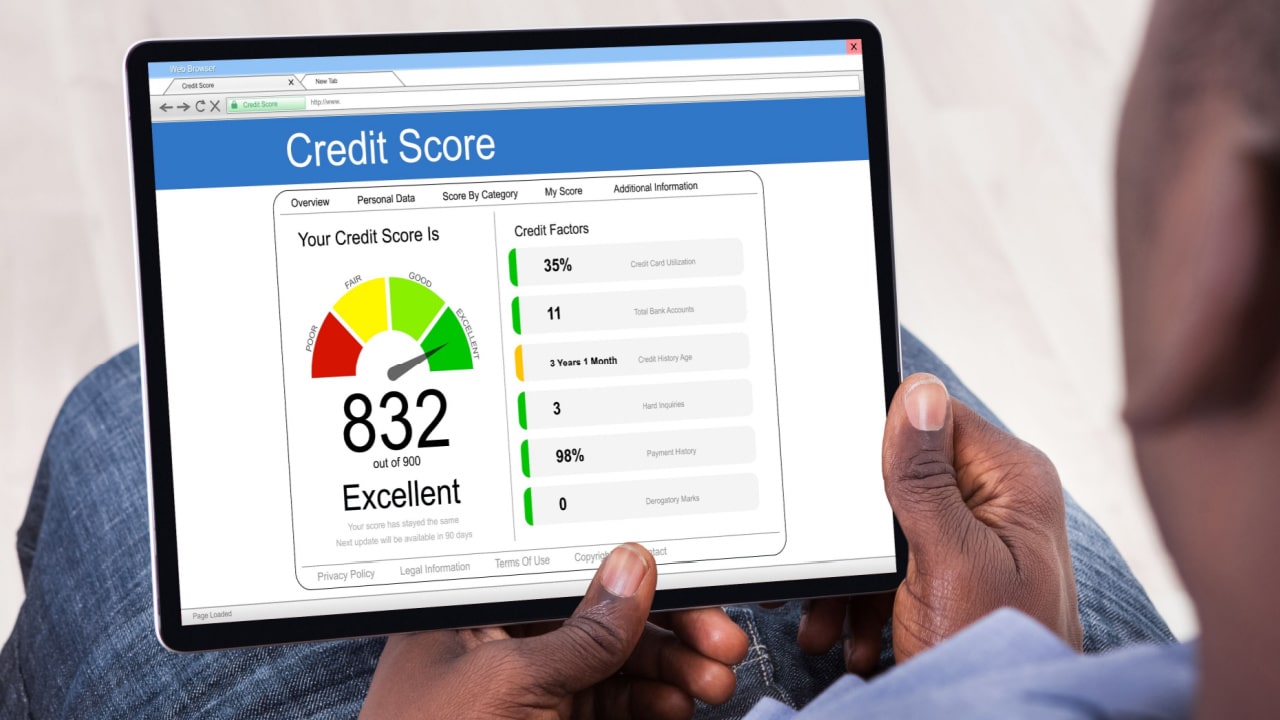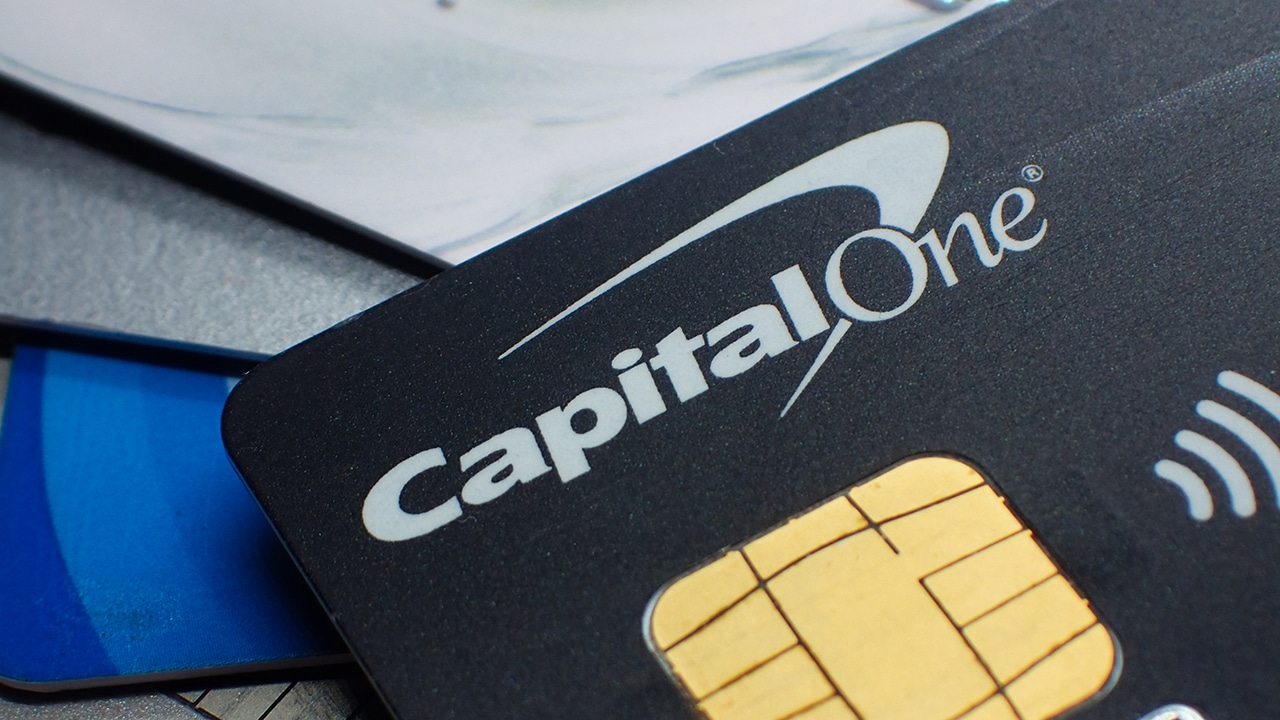We all want to protect and improve our credit scores, which is the smart thing to do. But it means that we can fall prey to common myths and misconceptions about credit scores that hinder more than help us.
#1. Checking Your Credit Report Hurts Your Score

The idea that checking your own credit report can lower your score is a widely held belief, but it’s a myth.
When you check your own credit report, it’s considered a “soft search” and doesn’t affect your score.
Regularly reviewing your credit report is actually good practice to ensure accuracy and identify potential fraud.
#2. You Only Have One Credit Score

Contrary to popular belief, you don’t have one credit score. Credit scoring models, like FICO and VantageScore have slightly different scores based on their specific algorithms.
Remember that different lenders might use different scores.
#3. Closing Old Credit Cards Boosts Your Score

Closing old credit cards, especially those with a long history, can actually hurt your score.
It reduces your total available credit and shortens your credit history, both of which are key factors in determining your score.
It’s often better to keep old accounts open.
#4. Carrying a Credit Card Balance Improves Your Score

There’s a common misconception that carrying a balance on your credit cards positively impacts your score.
However, carrying a balance typically means you’ll pay interest, which can indicate higher credit utilization, which isn’t good for your score.
Paying off your balance in full each month is the best practice.
#5. All Debts Are Equally Damaging to Your Credit Score

Not all debts are viewed equally. For instance, high-interest credit card debt is more detrimental to your credit score than a mortgage or student loan with a lower interest rate.
This is because credit scoring models consider your credit mix and the types of credit you’re using.
#6. Income Influences Your Credit Score

Your income doesn’t directly impact your credit score. Credit reference agencies base your credit score on your credit history, not your financial status.
However, lenders may consider your income when deciding to extend credit, as it demonstrates your ability to repay.
#7. A Higher Salary Means a Higher Credit Score

Similarly, having a higher salary doesn’t automatically mean you’ll have a higher credit score.
Your score is determined by your credit management habits, not by how much you earn.
High earners can have poor credit if they manage their credit poorly.
#8. Paying Off a Negative Record Removes It From Your Report

Paying off a debt in collections doesn’t remove it from your credit report. Negative records like late payments, foreclosures, and collections stay on your report for up to seven years, even if you’ve paid them off.
However, your credit score can still recover over time as you build positive credit activities.
#9. Only Credit Card Debt Affects Your Score

While credit card debt is significant, it’s not the only type of debt that affects your credit score. Loan balances, mortgages, and even some utility bills can impact your score.
Managing all forms of credit responsibly is key to maintaining a good credit score.
#10. You Start with a Perfect Credit Score

You don’t start with a perfect credit score. Everyone begins without a credit score, and it’s built over time as you start engaging in credit activities.
Establishing a credit history takes time and responsible credit use.
#11. A Poor Credit Score Stays Poor

It’s a myth that a poor credit score is permanent. Credit scores are dynamic and can change depending on your credit habits.
With consistent, responsible credit behavior, such as timely payments and low credit utilization, your score can improve over time.
#12. Co-Signing Doesn’t Affect Your Score

Co-signing a loan does affect your credit score. When you co-sign, you’re equally responsible for the debt. If the other person misses payments, it will also impact your credit score.
#13. Debit Cards Can Build Credit

Debit card usage doesn’t impact your credit score. Debit cards don’t involve borrowing money or making payments that could influence your credit score.
You’ll need to use credit cards, loans, and other credit products to build credit.
#14. You Need to Be in Debt to Have a Good Credit Score

This is a misconception. You don’t need to be in debt to have a good credit score.
Responsible credit management, like paying off your balance in full each month, can build a good credit score without accumulating debt.
#15. Marrying Someone with Poor Credit Lowers Your Score

Your credit score is independent of your spouse’s. Marrying someone with poor credit does not directly affect your own credit score.
However, joint accounts opened after marriage will impact both of your scores.
#16. Credit Repair Agencies Can Fix Your Score Overnight

Beware of credit repair agencies promising quick fixes. Improving your credit score takes time and cannot be done overnight.
Be cautious of agencies that claim they can remove accurate negative information from your report.
#17. Young People Have Lower Credit Scores

Age isn’t a direct factor in credit scoring. Young people can have high credit scores if they manage their credit responsibly.
It’s more about how long you’ve had credit and how you’ve managed it rather than your age.
#18. Credit Scores Aren’t Important if You’re Not Applying for Loans

A good credit score is beneficial even if you’re not planning to apply for loans.
It affects your ability to rent an apartment, get a cell phone plan, and sometimes even impact employment opportunities.
#19. Disputing a Credit Report Item Temporarily Boosts Your Score

Disputing an item on your credit report does not temporarily boost your credit score.
The disputed information is investigated and corrected if found inaccurate. Only legitimate corrections to your report can improve your score.
#20. Utility Payments Always Impact Your Credit Score

Utility payments don’t typically appear on your credit report unless they are delinquent and sent to collections.
However, some credit scoring models are starting to include utility payments in their calculations, so paying utilities on time can positively impact your score.
#21. Having No Debt Guarantees a Good Credit Score

Having no debt doesn’t automatically grant you a good credit score. Credit scores revolve around your credit history, including your debt management history.
You might not have a credit score at all if you have no credit history.
#22. You Should Avoid Credit Cards to Maintain a Good Score

Avoiding credit cards is not necessary to maintain a good score. In fact, responsible credit card usage is a powerful tool to build and improve your credit score.
It’s about how you manage your credit, not avoiding it altogether.
#23. Maxing Out Credit Cards and Paying Them Off Boosts Your Score

Maxing out your credit cards isn’t good for your credit score, even if you pay them off in full later. High utilization can be seen as a sign of credit risk.
It’s better to keep your balances low relative to your credit limits.
#24. Personal Bankruptcy Ruins Your Credit Forever

While bankruptcy can significantly damage your credit score and stay on your report for up to 10 years, it’s not the end of the road.
You can rebuild your credit over time with responsible financial behavior and proper credit management.
Biden’s New 401(k) Rule: Employers Frustrated as Retirement Planning Responsibilities Shift

The latest Biden administration rule on 401(k) plans is reshaping how employers manage retirement plans. It’s a complex scenario requiring a fresh understanding of fiduciary duties and provider relationships. This rule aims to protect employees but also imposes new responsibilities on employers. Biden’s New 401(k) Rule: Employers Frustrated as Retirement Planning Responsibilities Shift
Elon Musk: New Immigration Bill ‘Enables Illegals to Vote’

Elon Musk is calling for prosecutions after the text for a new senate bill on immigration was released. Musk accused the new bill of “enabling illegals to vote.” Elon Musk: New Immigration Bill ‘Enables Illegals to Vote’
Colorado Officials Reject Sanctuary City Status, Warn Against ‘Dangerous Game’

With increasing numbers of migrants arriving in Colorado, public officials have rejected any notion of the state becoming a sanctuary for migrants and asylum seekers. Colorado Officials Reject Sanctuary City Status, Warn Against ‘Dangerous Game’
Disney Challenges DeSantis’ “Don’t Say Gay” Rule With a Hefty Lawsuit

Disney is set to appeal its refusal for a lawsuit against Ron DeSantis, who stripped the company of its rights for disagreeing with the Governor’s views on the teaching of sexual orientation in classrooms. Disney Challenges DeSantis’ “Don’t Say Gay” Rule With a Hefty Lawsuit
Trump on the Attack as 21 Million Americans Flock to Obamacare, Biden Pushes Forward

An unprecedented surge in health plan enrollments has reignited former President Donald Trump’s commitment to dismantling the program should he secure the GOP nomination once again. Trump on the Attack as 21 Million Americans Flock to Obamacare, Biden Pushes Forward
The post Credit Score Myths Busted: Get the Facts Straight! first appeared on From Frugal to Free.
Featured Image Credit: Shutterstock / Rawpixel.com.
The content of this article is for informational purposes only and does not constitute or replace professional financial advice.
